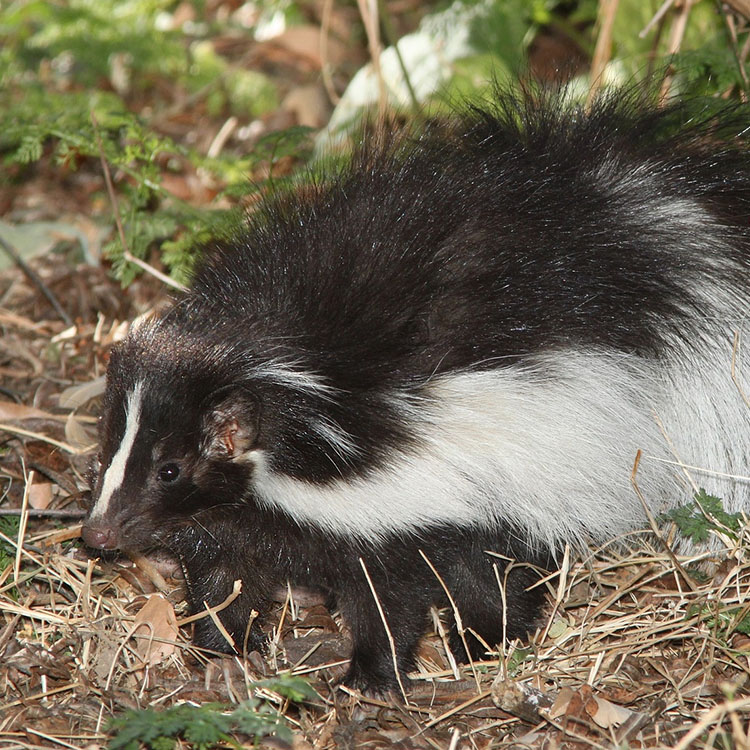Diseases & Dangers of Skunks
As with any wild animal, skunks are susceptible to be carriers of many different diseases. This is why it is always important to use caution when dealing with skunks. Skunks are common carriers of roundworm, which can be found in their feces. While most adults know better than to touch feces, this issue can be serious for people with young children and pets who can contract the worm easily. Skunk feces is also host to many other bacteria that can cause dangerous diseases in both humans and pets, which is why you should always use protection when dealing with feces. Leptospirosis and Tularemia are both diseases commonly found in skunk feces that can be transmitted to humans, and can have severe health risks.

Another disease that skunks are common transmitters of is rabies. While many people don’t think about skunks carrying rabies, it is still a concern. While typically nocturnal animals, skunks can also be seen during the day time as well so this does not necessarily mean that seeing a skunk during the day indicates it being rabid. However, this doesn’t mean you should approach a skunk, during the day or at any time. You should always use caution dealing with wild animals.
If you have any pets, you should keep them indoors when dealing with a skunk issue. Skunks have the capability of passing diseases to your pets as well. One of the most common is the passing of distemper to your family pet. They can also contract several different parasites from skunks, mostly from their feces.
Because of all the diseases skunks are known for carrying, it is very important to keep your distance from them unless they are already trapped. Even then, you should wear protective gloves just to be safe. If you are removing feces, make sure to not come into direct contact with it to prevent any possible spreading of parasites or diseases.